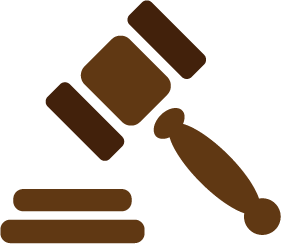Chapter 7 bankruptcy law is designed to make it possible for folks who see no light at the end of the financial tunnel to get a fresh start. Chapter 7 accomplishes this by taking two drastic steps. First, as much of the debtor's non-essential assets are liquidated as possible, with the proceeds of the sales going to the creditors. Second, any outstanding unsecured and non-exempt debts are then discharged.
You may be wondering how exactly that would help you. Take a look at what you might accomplish by pursuing a Chapter 7 bankruptcy.
Stopping Collection Efforts
This happens from the moment your filing reaches the court. The judge will issue a temporary order to all of the creditors that are named in your petition telling them to cease all collection efforts and halt all direct contact. If they absolutely have to discuss a problem, they will be directed to address those through the court or your attorney.
Note that it's critical to name all of the creditors who have outstanding claims on bills against you. If you slip up and miss one, that unnamed party will continue to have the right to seek collection.
Discharge of Most Unsecured Debts
Unsecured debts are ones that aren't backed by collateral. For example, your car loan is likely a secured debt because the vehicle itself is considered collateral that can be taken to satisfy the debt. Conversely, most medical bills, personal loans, and credit card debts are unsecured and eligible for discharge.
Many items are exempt from discharge, meaning you'll still have to pay them. Alimony and child support payments can't be handled through bankruptcy. Neither can tax bills and court judgments. Student loans almost never can be discharged, although there are exceptions in extreme financial circumstances.
Retention of Essential Items
The court understands that you'll need a certain number of things to survive. For example, you have the right to keep a practical vehicle, a place to live, furniture, and clothing. In other words, the Chapter 7 bankruptcy law is designed to keep you from becoming completely destitute.
Rebuilding Your Finances
A Chapter 7 filing will stay on your credit record for 10 years, but many agencies start building scores back up within a few months of the completion of the debt discharge. You may also be able to pursue a subsequent debt restructuring to fill in the gaps left by your Chapter 7 case.
To learn more about Chapter 7 bankruptcy law, contact a bankruptcy attorney.
Share31 March 2020

If your mountain of debt has grown so tremendous that you can't imagine a way out, then you need to contact a bankruptcy attorney. Even though filing bankruptcy can seem like cheating, it is sometimes the only option when you have consumer or medical debt that is consuming your paycheck and then being left unpaid. An attorney can take a look at your finances and recommend a pathway out of debt utilizing one of the several types of bankruptcy available. Learning more about this process can make it seem more approachable. Dig into the articles on this website to get started with that learning.